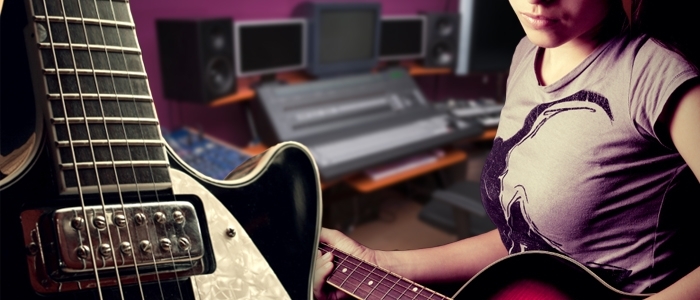
If there’s one thing that most musicians have in common – apart from their passion for music of course – it’s the love they share for their instruments. It comes as no small surprise then that they are prepared to go to great – sometimes even bizarre – lengths to conserve and protect those instruments that are so dear to them and that they are forever keen to ensure that they are well-treated and also well-kept. This, however, is not always as easy as it may at first seem, as the instruments’ well-being depends significantly on their immediate environment and the indoor climate.
The indoor climate in certain rooms in both older and outlying buildings, as well as the room climate in many cellars and basements where bands or budding musicians practise and hone the skills they have acquired or are still desperate to develop, is not just bad for either the instruments they are playing or the electronic equipment they are using, like amplifiers, speakers and synthesizers for example, it is quite simply downright damaging. And the main reason for this situation is high levels of humidity.
High levels of humidity are not just caused by poor insulation alone, they are also caused by the fact that each and every one of us emits body heat which, when coupled with the heat given off from such electronic equipment as mentioned above, means that a harmless band session can easily result in a sharp rise in the room temperature and a stark increase in the relative humidity. And what happens when the band has finished jamming and blamming and grooving and trying out new sounds? The temperature sinks again and the water vapour that has accumulated in the air condenses on the ceiling and cold walls and changes into fine droplets of water which cannot only seriously harm the instruments but also the people who play them. That’s because the excess moisture in the room has an adverse effect on many materials like wood and metal (no, not heavy metal), which can cause guitar strings and tuning keys to erode and rust and the body of a violin, cello or piano, for example, to warp or crack. Furthermore, it provides ideal breeding grounds for mould, one of the most common sources of allergies and asthma especially in children.
That’s why the right indoor climate is not a luxury, it’s a must! By taking the responsibility for the indoor climate in your home, office, workplace or band house or into your hands you are effectively determining the well-being of not only the instruments that are so close to your heart but more important still of those people who are probably even closer and who matter more in your life.
We at Trotec recommend using a thermohygrometer to monitor and check the relative humidity and the temperature in your home, office – or band house. If the relative humidity that you have measured is somewhere between 45 and 60%, then you generally have nothing to worry about – but if the humidity value is higher, then you run a high and very real risk of not only ruining your instruments but also your health. And because we are not the type of company that believes in doing things by halves, we also have the solution to any problems which you may have unearthed when using your thermohygrometer:
Trotec has a stunning range of state-of-the-art dehumidifiers which are all designed to regulate your room climate and ensure that the relative humidity is exactly the way you want it. The TTK 50 E is such a dehumidifier. The compact but highly effective unit is equipped, amongst other things, with a humidistat which switches the compressor off automatically when the relative humidity value you have set has been reached and on again as soon as the relative humidity increases. Now just add a fan heater to toast your toes and you can rest assured that you have done all you can to ensure that your instruments stay in good shape and that you and your family stay as fit as fiddles.
Trotec. We. Know. How.

